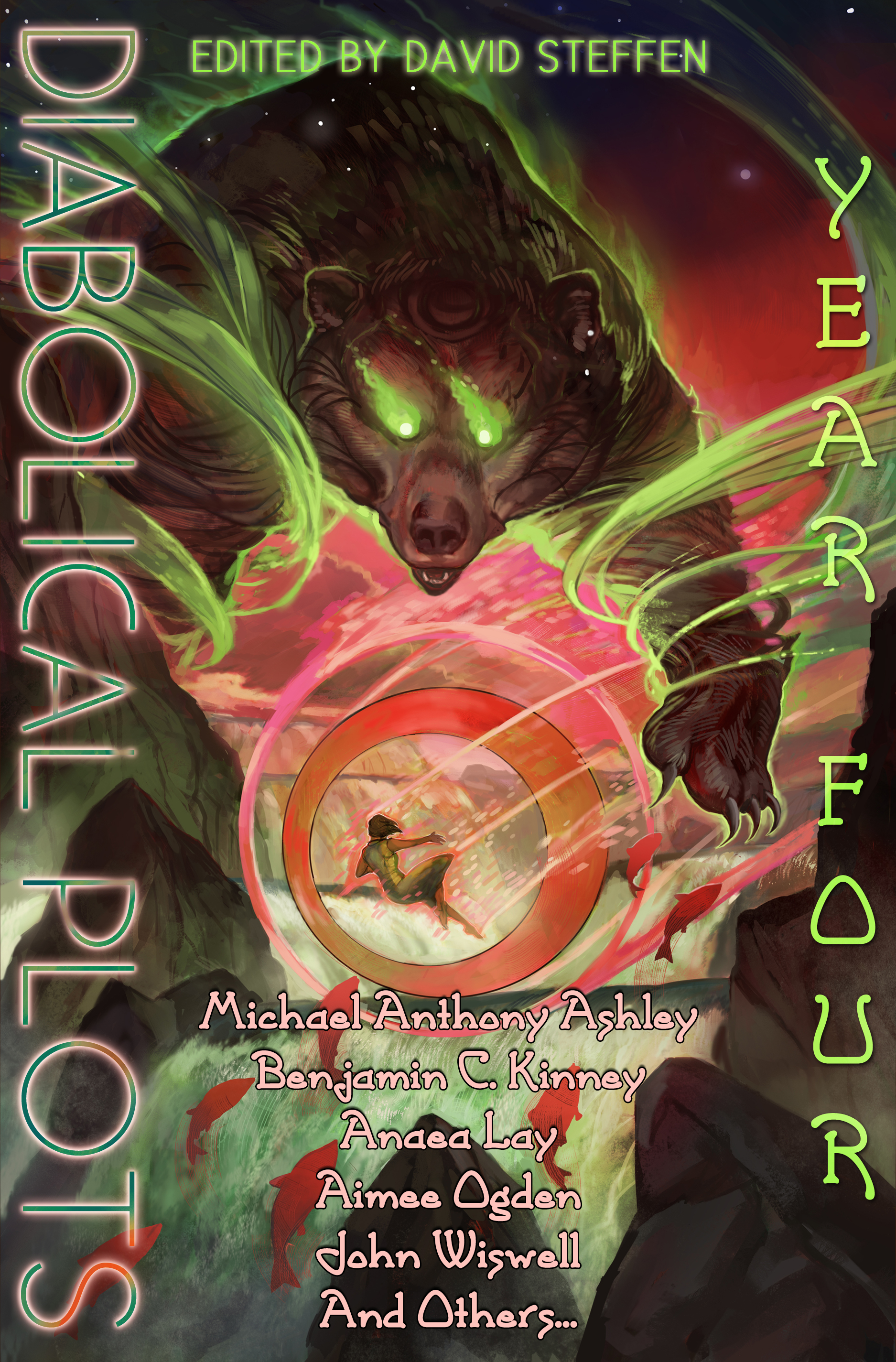I sit on the park bench and try to forget the cold. This was easier in springtime, when there was more day light and it wasn’t as cold. I forgot my jacket this morning and as the city lights turn on one by one, the temperature drops. I miss my coat, with its thick-padded elbows.
But I cannot go home.
I do not know where home is.
I am dancing a dance that begins each morning, and ends when the clock strikes midnight. By then, he will be asleep and whatever is broken will be broken and I will not watch my Prince Charming shatter anything else that I loved.
The park is quiet, at least. There are Christmas lights strung up, and there’s enough light to see by. I don’t have knitting to keep my hands busy. I do not have my paints or my canvas. I do not have my sweet Pumpkin to sit on the bench beside me and lay her drooly dog-head into my lap. She can’t keep me warm any more.
It’s all gone. Lost. Like a slipper at midnight and the years that follow after, chasing themselves until I’m an old woman with hands that hurt as the nights get longer, without a coat to keep me warm, afraid to go home until the clock strikes twelve.
The phone in my purse rings. It’s him, and there is nothing that I can say to him. I let it go, and pull myself up from the bench. My knees ache as much as my hands do, but there are still hours until I can sleep. There are floors to wash at home, but no furniture. Not for a long time. There are shelves to polish, but my pictures, my teacups, my little knickknacks are gone.
He’s sold them, or thrown them away, or sent them to wherever the precious things go when the clock strikes midnight and you’ve been too busy dancing out the starlight and don’t realize that your prince has been breaking all the glass slippers he can find.
I stopped answering the phone the night he called me to say that he had taken Pumpkin to the hospital. My sweet Pumpkin, who licked my face when she was a puppy and showed her tummy when she was being naughty. I could never be mad at her, not with her tongue lolling out. Not when she’d filled the emptiness that grew in the house.
“She’s dead,” he’d said.
“They’re gone,” he’d said of the pictures. Our wedding pictures. Old photographs of my mother, my father. Pictures of us at the beach and Polaroids from college.
“Sold,” he’d said. The rocking chair he bought me when we’d been married thirty years. The grandfather clock that his Opa had brought from Germany. The plates that had sat, unused, in my hope chest, bought with the money I’d saved babysitting for the neighbors as a little girl.
There are tears in my eyes.
I find a seat in the coffee shop. It’s open all night and the girl behind the counter doesn’t give me a second glance. She has thick red dreadlocks, a piercing through her nose, and her eyes on her cell phone. She does not look up as I settle in. It’s not quite ten o’clock and the little café is busy. There are couples, bundled with thick coats, smiling at each other.
There is not enough money in my purse for a biscotti. He cancelled the credit cards and I am not allowed to have more than what I am given, more than what he thinks I have earned.
I miss my Pumpkin.
“There are mice in the walls,” he’d said. I sat on my rocking chair and laughed.
“Don’t be silly,” I’d said, sipping my bedtime tea. “There’s nothing in the walls, Mike.”
“There are, Hazel,” he’d said.
“And I suppose they make me dresses while we’re sleeping.” I laughed again and reached forward to place my hand on top of his. We had done it a hundred, a thousand, times. But for the first time, since that awkward first moment when we were still he-and-I, he pulled away. He pulled away from me and stared at my face as though I were some nameless step-sister and not his wife.
It is warm inside. The seat is more comfortable than the park bench, and the music playing from the speakers is a gentle waltz. It reminds me of the first time I met my husband, when the radio played the waltz and Betty Ann Lamontagne’s party had been dancing for hours. The sound from the speakers lulls me, and my eyes close. When they open, the café is empty and the music is still soft.
A biscotti sits on a plastic plate, on the table in front of me. There is a napkin folded underneath it.
The girl with red dread-locks is sitting across from me, a leg tucked up under her. The phone is gone, but she is cradling a steaming mug in her hands.
“Try it,” she says, gesturing to the plate with her chin. “It’s pumpkin. And organic. Gluten free. You name it.”
“I can’t,” I say. There is just money in my pocket book for a train ride home. Not enough for cookies, unless I want to start scrubbing the café floors.
“On the house,” she says.
“I really can’t,” I say. No matter how much I want to. I would like something nice and sweet. I would like a cup of tea and my rocking chair and the man who was my husband. Who had been my home before my home went away.
The girl says nothing, but she takes a long sip from her cup.
She smiles when I pick the plate up off the table, lift the biscotti, and bite into it. I can’t let it go to waste.
When I’ve eaten every speck of the cookie and the taste of pumpkin—unlike any other taste in the world, and my favorite—is gone from my tongue, she is still smiling.
“Looks like you needed that.”
“Thank you,” I say. I’d made treats for my sweet Pumpkin, once. Baked them in the oven and fed them to her one at a time. Her muzzle had just started to gray.
And she is gone and the phone in my purse rings again. And again I do not answer it.
“I have one of those too,” she says.
“It was really kind of you.”
“I meant the crazy ex,” she says as she stands, clears away the plate, and sits back down across from me.
I touch my wedding ring, a thin band of gold, unthinking.
“Crazy husband then,” she says. “I don’t have one of those.”
I should tell her that he isn’t crazy. That work has been busy and he has lost a few important accounts. It’s not his fault that things have gotten bad. That he thinks my paints attract mice, and that my china hides rats. That it’s not his fault that there are tears in my eyes again.
I tell her the truth. The first truth I could say to anyone other than myself, or to Pumpkin.
“The last time I answered his phone call, he told me that he had taken Pumpkin to the hospital and that she was dead,” I say. “She was old, but she wasn’t sick. She would sit with me on the park bench when I couldn’t go home yet and would curl up beside me after he said we couldn’t keep the bed, and we couldn’t put the heat on, because it would encourage the mice.”
She sets her tea down and before I can say anything else, let any more secrets from my mouth, she is sitting beside me and has her arms wrapped around me. I can’t remember the last time someone has hugged me.
“She must have been so scared,” I sob, into the strange girl’s shoulder. But she holds me tighter and smells like cookies. “She must have been so scared without me there. If I’d been there he wouldn’t—he wouldn’t have…”
When I have finished crying and the girl has brought me a hand-full of rough paper napkins, I look at the time.
“Thank you,” I say. “I don’t usually do this sort of thing.”
“It’s alright,” she says.
“It wasn’t always like this. He wasn’t always like this. I left my dancing shoes at the party where we met. He found out where I lived and brought them back to me.”
But the girl with red dreadlocks isn’t paying attention. She is looking at the clock, as the arms move together at the top.
“It’s midnight,” she says to me. “Make a wish.”
“Thank you,” I say, not understanding the strange girl. I can’t tell her my wishes anyway. “I’ll pay you back as soon as I can.”
“No,” she says. “That’s not your wish, Hazel.”
I did not tell her my name.
“That pumpkin season lasted year round,” I say, pulling my purse close to me. There is enough strangeness at home without more at the coffee shop.
She’s still watching me. She smiles. “I’m kind of new at this. You’ve got until the clock is done striking twelve. Make your real wish.”
But my hands are on the door to the shop.
“I wish home was waiting for me,” I say, stopping long enough to brace myself for the cold. I do not have my jacket or my dog, and have only just enough money to get home. I wish so much that home is waiting for me, not the empty lack of it.
When the last train drops me off at the station, and I walk the last block to where my husband and I had made our home, I take a deep breath and prepare myself. He will be asleep, it is midnight. It will be enough that I do not have to speak to him until dawn, and then I can find a way to not come back.
The lights are on, which is strange.
Stranger still is that when I turn the knob, there is warm air on the other side. There is a frame on the wall, and inside the frame is a watercolor I did when I was sixteen. A watercolor that had not been there when I left this morning. A watercolor that had gone missing months ago, because it would hide the mice in the walls.
“Mike?” I say as I step forward and shut the door behind me. My china cabinet is full. But my husband’s grandfather clock is not beside it. The bookshelves are full again and when I step into the kitchen, I cannot speak above a whisper.
“Mike?” I rub my hands together, and for the first time since I was married, I can feel bare skin on my left hand. My wedding band is gone.
There is a plate of biscotti on the table, and as I touch the plate, I hear a noise I have not heard outside of my memory for months. I turn and my dog—my Pumpkin is sitting, smiling. Her stumpy tail wagging. Welcoming me home.
© 2018 by Sean R. Robinson
Author’s note: This story is part of a series I call “Laundramat Fairy Tales” mashing up real-life with Once Upon a Time. This was inspired by a quote from the site Humans of New York. That, coupled with the experience of growing up with my grandparents (though, thankfully, there were no mice in the walls).
 Sean Robinson is an author of Science Fiction and Fantasy. He has been a professional spelunker, fire-breather, has taught horseback riding, and whip making. After almost a decade working with high-risk adolescents, he’s recently begun teaching high school English. It may be the scariest thing he’s ever done.
Sean Robinson is an author of Science Fiction and Fantasy. He has been a professional spelunker, fire-breather, has taught horseback riding, and whip making. After almost a decade working with high-risk adolescents, he’s recently begun teaching high school English. It may be the scariest thing he’s ever done.
If you enjoyed the story you might also want to visit our Support Page, or read the other story offerings.



 Captain Underpants: The First Epic Movie is a computer animated film produced by DreamWorks Animation that was released in June 2017 in the US, based on the long-running book children’s book humor superhero series.
Captain Underpants: The First Epic Movie is a computer animated film produced by DreamWorks Animation that was released in June 2017 in the US, based on the long-running book children’s book humor superhero series.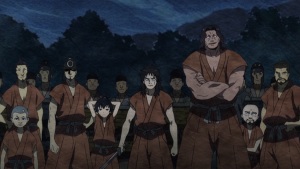


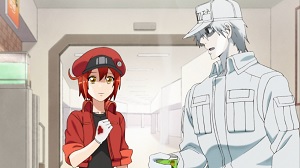
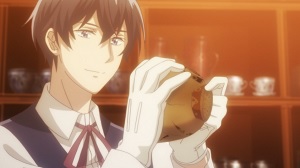
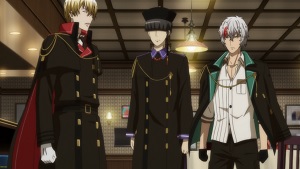

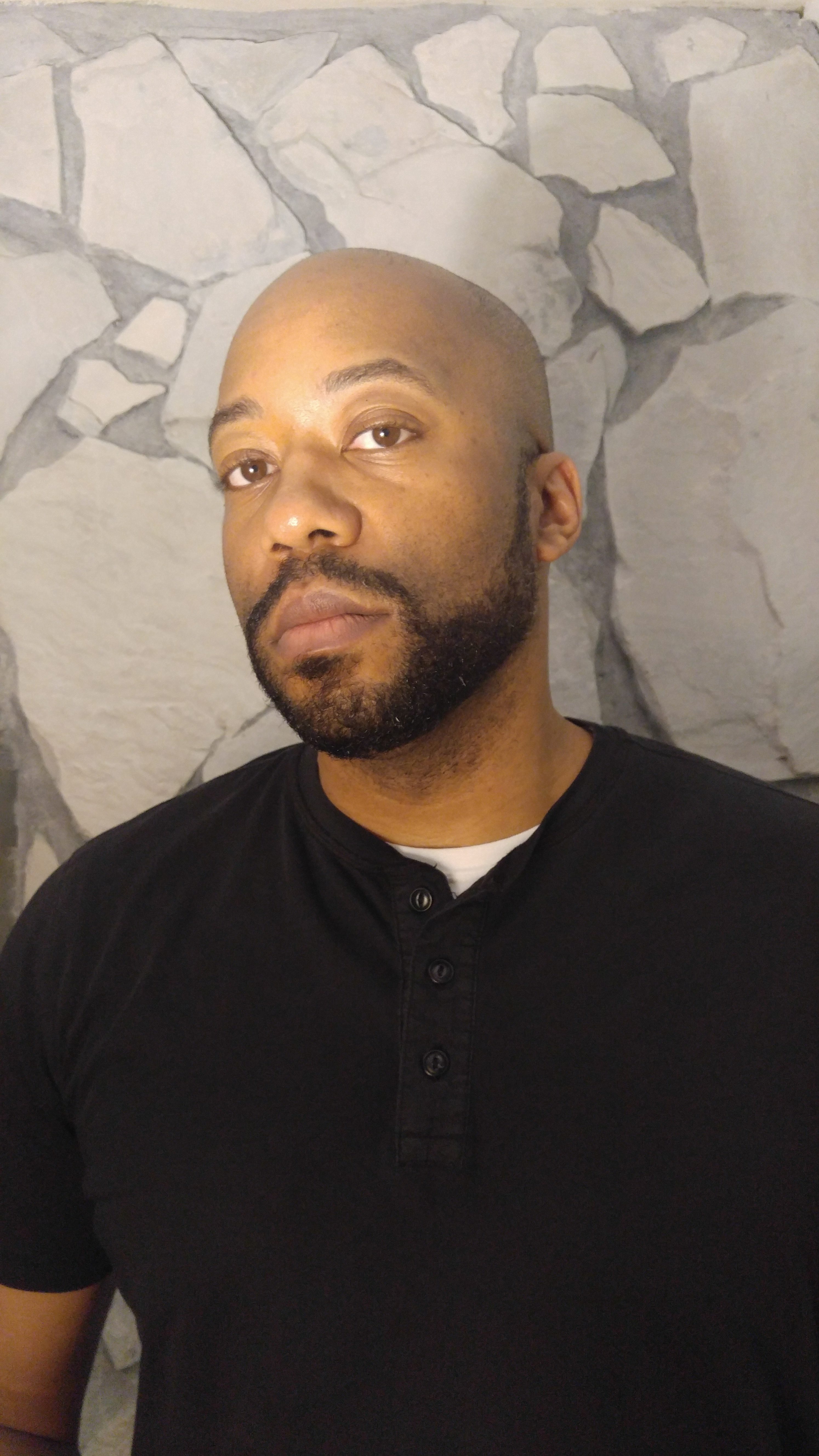
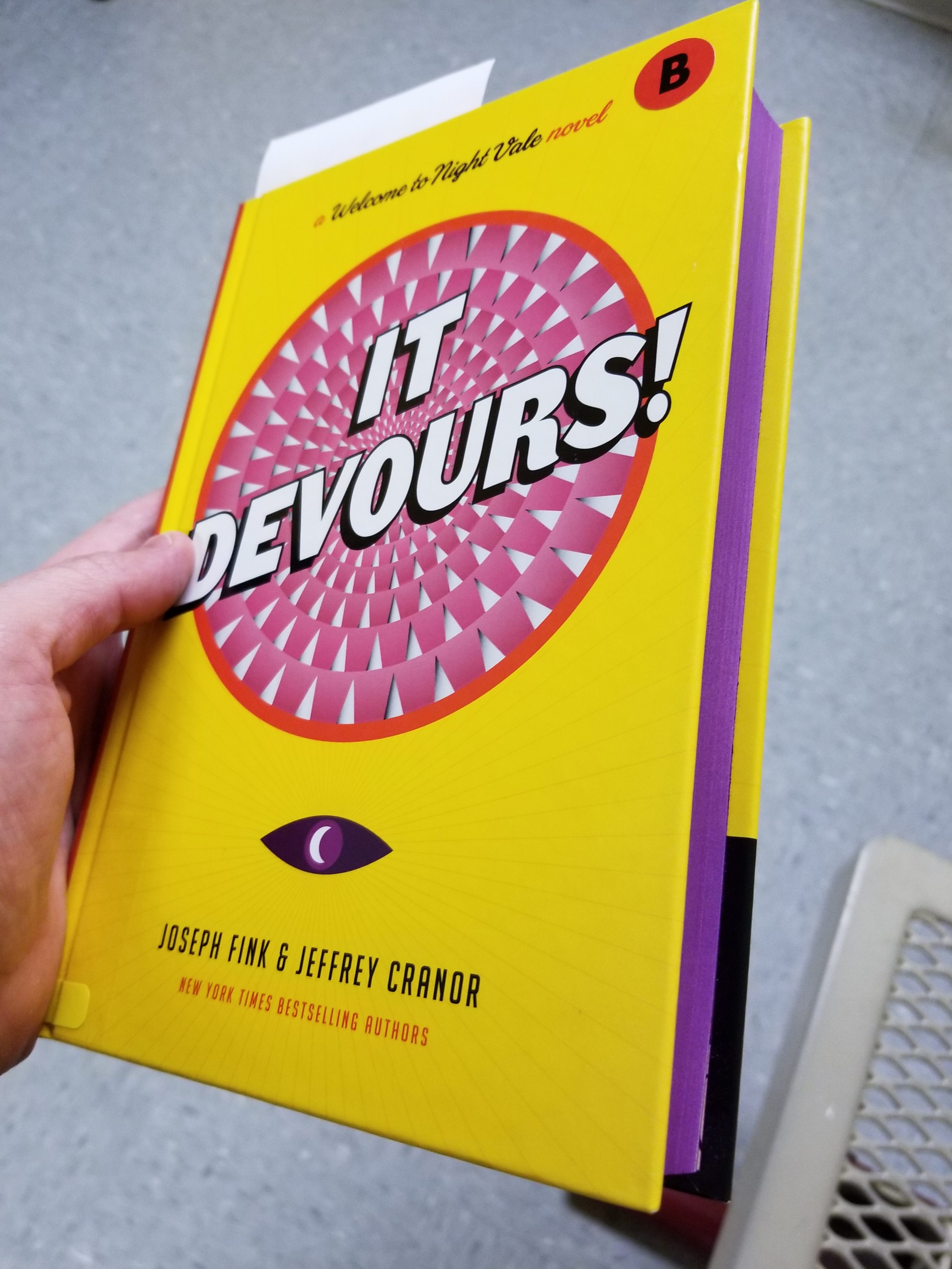
 Super Mario Odyssey is a new 3-D platform action game in the beloved and long-running Super Mario series of games, released by Nintendo for the Switch platform in October 2017.
Super Mario Odyssey is a new 3-D platform action game in the beloved and long-running Super Mario series of games, released by Nintendo for the Switch platform in October 2017.